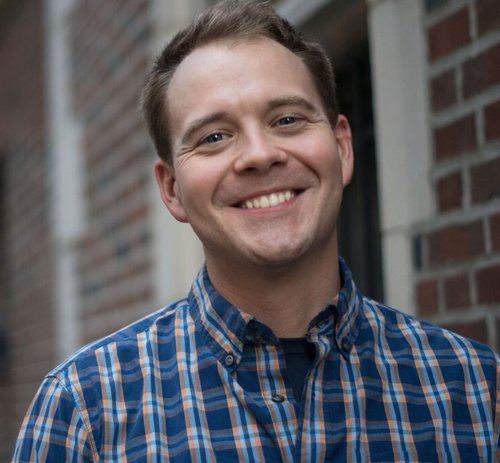Across the Western world in the vanishing pews of Europe and the bustling mega-churches of America, there is an epidemic. Its widespread effects can be found among mainline Protestants and charismatic evangelicals, Roman Catholics and Southern Baptists. No one group among the wider Western church seems immune. That epidemic is indifference.
More than any other period in the last two thousand years, Christians across the globe are facing persecution. From Africa to the Middle East, India to Southeast Asia, China, and North Korea, the global church is undergoing violent persecution. While Christians in America and in the West are aware of the plight of their brothers and sisters abroad, the question remains: do they care?
This was the question posed at the Global Christian Persecution Summit on May 10 in Washington, DC. Hosted by the Institute on Religion & Democracy (IRD), this daylong event brought activists and faith leaders together to “examine why American Christians have failed persecuted Christians overseas.” Speakers included the newly appointed US Ambassador-at-Large for International Religious Freedom Sam Brownback, Rabbi Jon Hausman of the Congregation Ahavath Torah, Former Congressman Frank Wolf, Faith McDonnell of IRD, and Luke Moon, deputy director of the Philos Project.
The event served to lament rather than lionize the American church for its inactivity and indifference in the face of an unprecedented increase in violent persecution of Christians abroad. Ambassador Brownback began the day by outlining the stakes in stark and unrelenting terms: Christians are facing a “global religious war.” According to Open Doors USA, a Christian persecution watch group, 215 million Christians face persecution worldwide. This represents one-twelfth of the entire global Christian population. So, what can be done? What should be done?
The Theology
There are reasons beyond the practical for American Christians to care about global Christian persecution. The Bible relates the experience of Christianity in corporeal and familial terms. Christianity is not a club, nor is it a society of like-minded individuals; it is a unified body, an extended and intimate family. The Apostle Paul writes in Ephesians that Jesus proclaims peace to those who are far off and peace to those who are near, and that all who believe are being joined together into the household of God. Whether one is close or distant, if one believes, he or she is part of the family of God in Christ (Ephesians 2:11-22). Though Christians are many and diverse, Paul declares that “we are one body” (Romans 12:5). And as such, the experience of Christians abroad relates directly to the domestic American church. Christians are not bound by politics, nationality, or ethnicity, but by an eternal relationship that transcends borders and time.
This theological grounding provided the backdrop for the IRD Summit. Christians owe fidelity to other Christians, and the New Testament commands believers to love everyone, but to especially do good to those within the household of faith. So what does it look like when American Christians begin to “do good” to those persecuted within the household of faith?
The Activism
A sizable portion of the May 10 summit served to call the American church to action. Speaker after speaker, from Ambassador Brownback to Rabbi Jon Hausman, echoed the sentiment and words of German theologian and Nazi resistance fighter Dietrich Bonhoeffer, saying that “silence in the face of evil is itself evil.” Rabbi Hausman spoke with words of consolation as well as conviction. “Christians can take courage and instruction,” he said, “from the experience of the Jews, who have undergone an estimated 1,900 to 2,300 years of sustained persecution.” The persecution currently faced by Christians abroad is not unlike the many periods of rampant anti-Semitism and aggression faced by Soviet Jewry during the Cold War. And like American Christians today, American Jews during the Cold War were confronted with the same distant and personal injustice.
Rabbi Hausman offered his own experience as a model for the Christian community of today. In 1964, as many Jews were trapped behind the iron curtain within the Soviet bloc, American Jewish students took matters into their own hands. Hausman and others formed the Student Struggle for Soviet Jewry. Largely a grassroots effort, these students continually challenged the American Jewish establishment, who seemed deaf to the cries of their subjugated brethren. They held signs, printed flyers, and pestered the very politicians in power who could direct and change immigration and foreign policies. Hausman estimates that their advocacy saved the lives of millions of Jews.
So is the Jewish experience instructive for American Christians today, as they are faced with the challenge of responding to the persecution of their brethren?
The Challenge
The challenge of Christian persecution is twofold. For those undergoing persecution, the challenge is to survive. For those witnessing persecution from afar, the challenge lies in how to affect change amidst the feeling of complete inadequacy. Almost every Christian who is made aware of the persecuted church is caught in the tension of knowing about injustice and yet feeling powerless to prevent it. How can a churchgoer in Alabama stop beheadings in Egypt? How can a Catholic in Boston comfort a congregation after its church has been bombed in Indonesia? These feelings of inadequacy and powerlessness quickly turn to apathy. This apathy is only encouraged by the privilege that Western Christians have enjoyed these past centuries as the majority religion within their culture.
So, how do you get the privileged majority in one culture to find solidarity and have compassion for the persecuted minority in other cultures?
One key distinction between Jewish persecution and Christian persecution is that these persecutions are not happening in a cultural vacuum. The Jewish mindset is one acclimated to being a minority. With the exemption of Israel, Jews have never occupied the majority of any nation or culture, whereas Christians in the West have largely known nothing other than the majoritarian experience. This presents a unique challenge to the persecuted church movement; not only must it raise awareness, it must inculcate the minority mindset into the majority culture.
This struggle is not unique. We have seen similar efforts made concerning the fight for racial justice and reconciliation in America. Advocates argue that it is not enough for those within the white majority to be aware of racial injustice experienced by minorities. The majority must awaken to the understanding that their privileged position often blinds them to the empathy and understanding required for true reconciliation.
The challenge for all efforts fighting racial injustice is to convince the majority on one side of the tracks that they share the same DNA, imago Dei, and civil liberties as those on the other side of the tracks. Likewise, the challenge for the persecuted church movement is to convince the majority of privileged Christians here that they share the same God and the same savior as their persecuted minority brothers and sisters on the other side of the world. Caring less is not an option in the face of this reality.
—
Drew Griffin is the managing editor for Providence.
Photo Credit: US Ambassador-at-Large for International Religious Liberty Sam Brownback addressing the IRD Summit on Christian Persecution. Photo by Drew Griffin
For more information about the persecuted church and how to become involved in the struggle, please visit the IRD’s International Religious Freedom Program and Open Doors USA.






